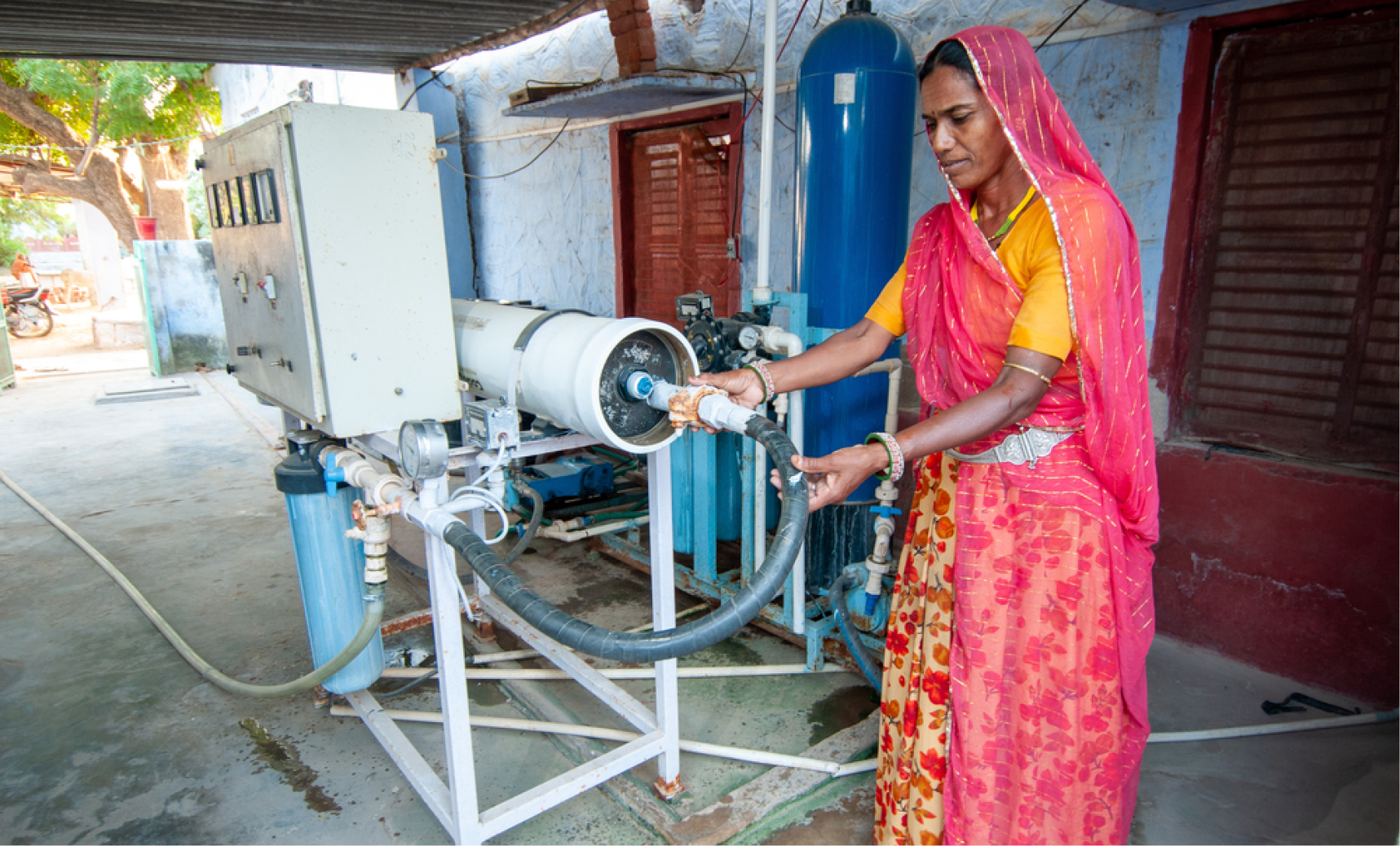Improved Research and Practice Related to Women’s and Girls’ Empowerment and WASH Urgently Needed

By Kelly Jordan
A new Rollins-led review article published in PLOS Water is the most comprehensive synthesis to date of current evidence on water and sanitation and women’s and girls’ empowerment. Bethany A. Caruso, PhD, MPH, was lead author on the article, which was entirely Emory authored.
With women carrying much of the burden for WASH-related activities at a global scale, investigating the ways in which women’s and girls’ empowerment is impacted by WASH programing is critical in developing effective public health initiatives.
“Effective WASH programming could engage women to understand their needs and support them with the resources and agency to improve their circumstances,” says Caruso. “Yet, this review illuminates how poor water and sanitation conditions have resulted in myriad negative impacts on women, which continue to remain unaddressed. Women risk physical and sexual violence, experience illness and injury, compromise their mental well-being, limit hygiene and food and water intake, and suppress sanitation and menstrual hygiene needs because of inadequate WASH."
The authors included 257 articles in their analysis, representing approximately 1.6 million participants. More than half of the publications assessed used the term “empowerment,” but very few provided a clear definition for the term. The authors noted several additional shortcomings for current WASH research as it relates to women’s empowerment, and synthesized water and sanitation by empowerment domains and subdomains. “Few studies clearly conceptualized empowerment, used quantitative measures to assess empowerment, or reported on programs to improve women’s empowerment-related outcomes,” the authors write. “Agency… was the least commonly engaged empowerment domain.”
“Improving WASH conditions may not only prevent or reduce the negative impacts experienced by women, but could also transform their lives,” says Caruso. “Intentionally designed WASH initiatives could save women time and labor, engage them in leadership roles, enable economic opportunity, and more. Yet, despite all the potential harms and benefits of WASH that these studies show, scant action has been taken.”
The authors provide recommendations for improved research and practice recommendations related to women’s and girls’ empowerment including:
- Acknowledge the importance of empowerment in water and sanitation research and practice.
- Measure, monitor, and report the impacts on women and girls related to water, sanitation, and the sub-domains of empowerment (such as: agency, decision-making, leadership, health, bodily integrity, social capital, etc.).
- Act on and evaluate systemic constraints related to women’s and girls’ resources and agency.
- Use empowerment terminology deliberately.
- Expand populations engaged in research and programming (most of the research to date is in Asia and Africa and among adult women).
- Expand research focus to incorporate additional domains, and sub-domains, specifically “agency.”
“A more comprehensive, ‘transformative WASH’ that includes gender-transformative approaches to challenge and reduce systemic constraints on women’s and girls’ resources and agency is long overdue,” says Caruso. “Water and sanitation circumstances and conditions have had myriad negative impacts related to women’s and girls’ empowerment that remain unmonitored and neglected in programming.”
This work, funded by the Bill & Melinda Gates Foundation, is part of a larger ongoing project called MUSE (Measuring Urban Sanitation and Empowerment), which includes the development of measures to assess women’s empowerment related to sanitation in urban settings. This review was undertaken to inform those measures.


